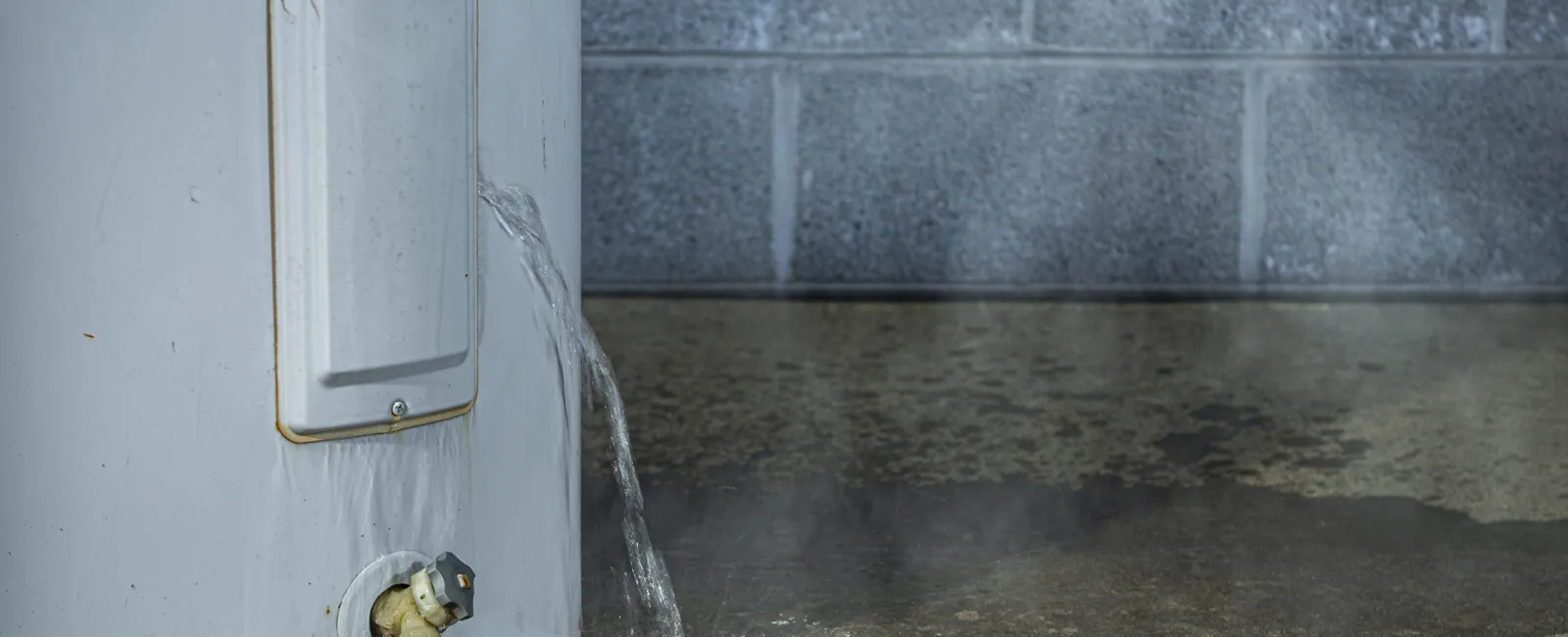A leaking hot water tank isn't just an inconvenience—it's a sign that your water heater might be nearing the end of its life, or that a small problem could turn into major water damage. Understanding the causes, warning signs, and preventative measures can save you thousands of dollars in repairs.
Why Do Hot Water Tanks Leak?
There are several common reasons a hot water tank may start leaking:
- Age and Wear
Most water heaters last 8-12 years. Over time, the metal tank can corrode, leading to small pinholes that eventually cause significant leaks. - Sediment Buildup
Minerals in hard water settle at the bottom of the tank, creating a layer of sediment. This buildup causes the tank to overheat, weakening the metal. - Loose or Failing Connections
Leaks can occur at the cold-water inlet or hot-water outlet if fittings become loose or seals deteriorate. - High Water Pressure
Excessive water pressure can stress the tank and plumbing joints, leading to leaks. - Faulty Temperature & Pressure
Relief Valve
If this safety valve malfunctions or becomes clogged, water can escape as a warning sign.
Signs Your Hot Water Tank May Be Failing
Watch for these indicators that your water heater may be close to leaking or already leaking:
- Water pooling around the base of the unit.
- Rusty water coming from your faucets.
- Unusual noises like popping or rumbling, caused
by sediment buildup.
- Reduced hot water supply or fluctuating temperatures.
- Visible corrosion on the tank or connecting pipes.
How Often Should You Replace a Hot Water Tank?
- Typical lifespan: 8-12 years for traditional
tanks.
- Tankless water heaters: Can last 15-20 years with proper
maintenance.
- If your tank is over 10 years old
and showing any warning signs, replacement is often the most
cost-effective option.
How Water Leak Detection Can Save Your Home and Money
Installing a water leak detection system offers peace of mind and prevents costly damage by:
- Detecting leaks early — Sensors placed near your water
heater alert you immediately to moisture.
- Automatically shutting off water — Smart systems can cut off the
water supply when a leak is detected, minimizing damage.
- Preventing mold growth — Quick detection reduces the
risk of hidden water damage and mold remediation costs.
- Saving on insurance claims — Some insurance companies offer
premium discounts for homes with leak detection systems.
A leaking hot water tank is more than a minor annoyance—it's a red flag that shouldn't be ignored. By understanding the causes, keeping an eye out for warning signs, replacing your unit when necessary, and investing in a leak detection system, you can protect your home, avoid expensive repairs, and enjoy uninterrupted hot water.






